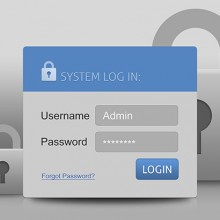
What is it?
To download something means to receive data from a remote system, such as an email server or web server, to a local system, such as a personal hard drive or phone. Some people confuse downloading with streaming. Streaming indicates the receiving of date that is used right away as it is being received, but it is not stored long-term. Downloading on the other hand implies that the data is only useable when it has been received in its entirety, and it is often saved so it can be used again. Many websites that offer streaming have placed restrictions on downloading to prevent users from saving certain forms of media.
How to
The first thing you need to do to download is to find a file. This could be on a website or attached to an email you received. If you are looking for a certain file, using a search engine (such as Google) can help you find that specific file. Once you have located the file, you need to find a link to download it. Often the link will say “download”, although it may be a bit trickier to find. For media such as YouTube videos, you will need to use another site to convert the media into a downloadable file before downloading it. Once you click on the link, a box will show up asking you whether you wish to save or open the file. It is usually best to first save the file somewhere on your computer and running it after it has been downloaded. After it has saved, you have successfully downloaded your file!
Why do it?
Downloading is the perfect way to save a certain file or form of media on your computer, allowing you to access it whenever you want. This saves you from having to constantly revisit a website to access that file. The owner of the file may also remove it for some reason, which means if you do not download it, you may not be able to access it again. By downloading the file to your computer, you will be able to access it whenever you want. Downloading music is a popular option, especially for people who own smartphones, allowing you to listen to your favourite music whenever you want, instead of waiting for it to come on the radio station. You can also leave your computer alone while your file downloads, which is a benefit for larger files which may take hours to download.
Risks
The biggest risk when it comes to downloading anything is the possibility of getting a virus. A virus can corrupt your files and essentially destroy your computer.
Using a solid anti-virus software can help prevent any malware that may be present in the file you download. Many files will also offer their own toolbars for your internet browser. While most of these are relatively harmless, they can pile up quickly and clutter your browser. Some toolbars can even steal your personal information, making them a safety risk. Beside toolbars, there are many other kinds of software that are offered on top of what you are downloading, which often contain malware and will slow your system down significantly by occupying any free space you might have.







